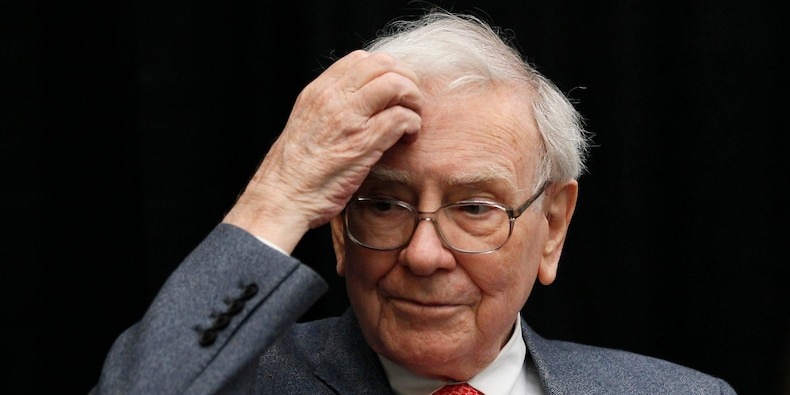
REUTERS/Rick Wilking
- Warren Buffett’s Berkshire Hathaway sold stocks and reduced buybacks last quarter.
- The famed investor’s company cashed out a net $3.9 billion of equities.
- Berkshire also bought back $6.6 billion of stock, down from about $9 billion last quarter.
- See more stories on Insider’s business page.
Warren Buffett’s Berkshire Hathaway was a net seller of stocks and reduced its share buybacks last quarter, suggesting the famed investor struggled to find bargains as markets flirted with record highs.
The billionaire’s conglomerate owns businesses such as Geico and See’s Candies, as well as multibillion-dollar stakes in Apple, Coca-Cola, and other public companies. Its first-quarter earnings on Saturday showed that revenue rose 5% year-on-year to about $64.6 billion in the three months to March 31, driving operating earnings up 20% to $7 billion.
Berkshire sold a net $3.9 billion in equities last quarter, as it bought $2.6 billion of stock and sold $6.5 billion worth in the period. That suggests Buffett and his team made few changes to their stock portfolio compared to last year, when they bought an average of $7.5 billion of stock and sold close to $10 billion each quarter. Berkshire will disclose its US stock holdings as of March 31 in a SEC filing later this month.
Buffett’s company spent $6.6 billion on share buybacks last quarter, down from about $9 billion in both the third and fourth quarters of 2020. It also tapered the rate of purchases significantly between January and March as the prices of its two share classes rose.
Berkshire’s held $145 billion in cash and short-term investments at the end of March – a 5% increase from three months earlier. While a good chunk of that is reserved for insurance payouts and to fund the capital needs of Berkshire’s businesses, Buffett has been roundly criticized for not deploying the rest, and failing to bag the “elephant-sized” acquisition he’s been hunting for several years now.
When the COVID-19 pandemic tanked markets last spring, Buffett focused on protecting his investors’ money rather than snapping up bargains. The federal government also moved quickly to help struggling businesses, preventing him from striking the kinds of lucrative deals he made during the 2008 financial crisis.
However, Buffett shifted gears in the second half of 2020. He plowed billions into stocks, struck several deals, and ramped up buybacks to record levels. Berkshire’s net stock sales and slimmer buybacks last quarter could mean valuations have grown too rich for the investor’s liking.
Buffett, along with his right-hand man Charlie Munger and two of his deputies at Berkshire, will field questions at Berkshire’s annual shareholder meeting later on Saturday. They are likely to offer greater insight into Berkshire’s recovery from the pandemic, and comment on subjects such as market speculation, the cryptocurrency boom, and President Biden’s tax and infrastructure plans.













